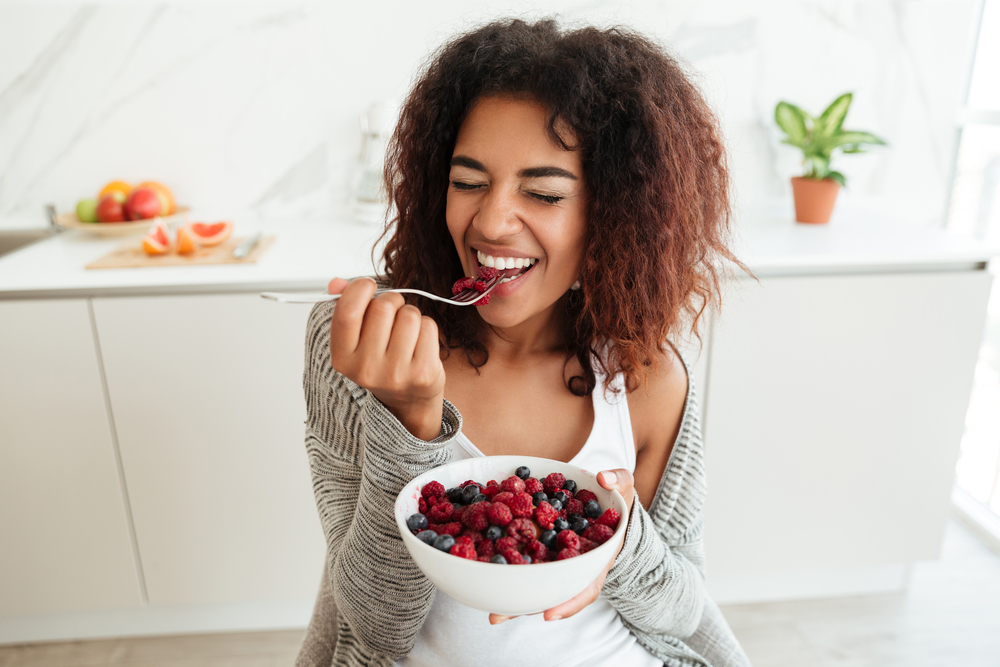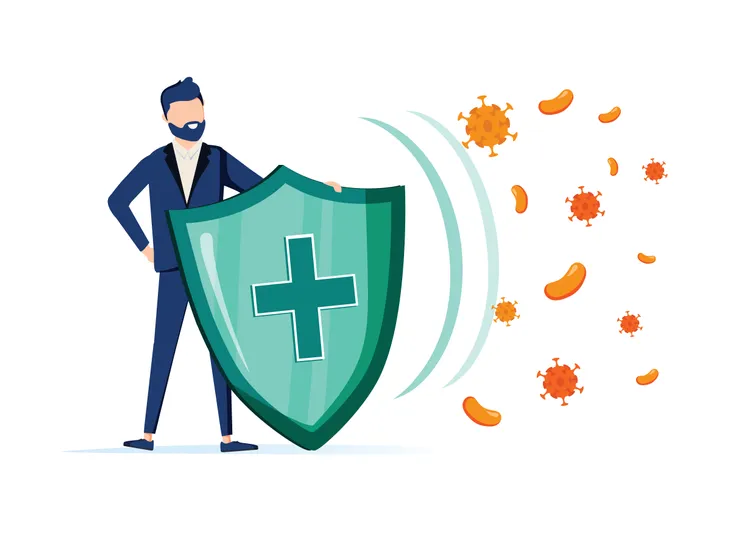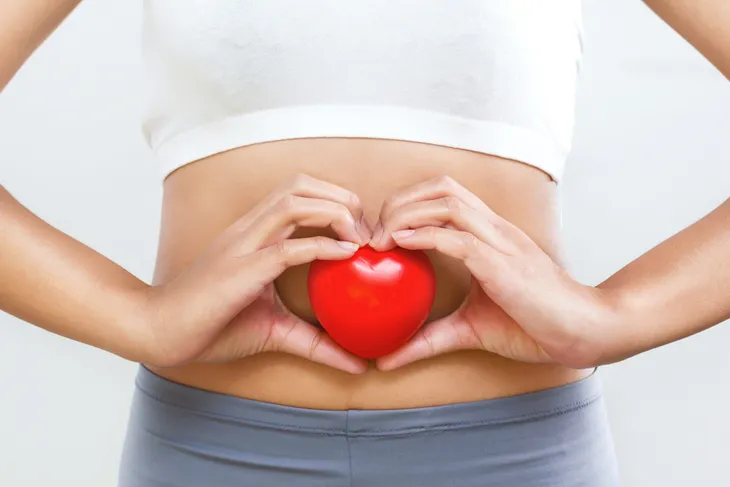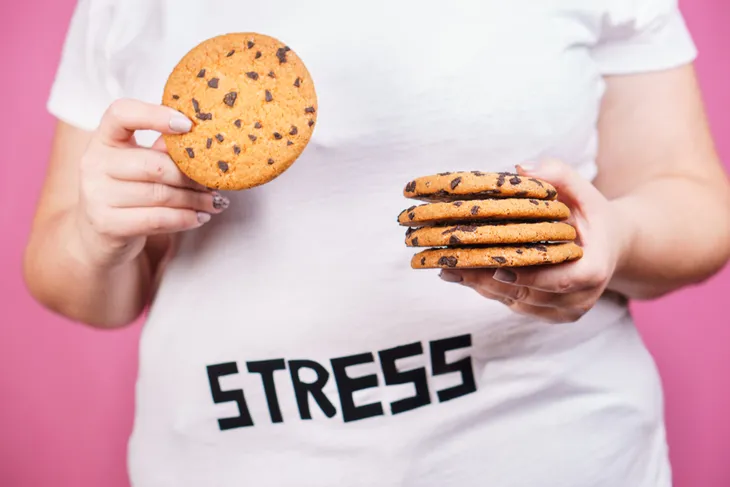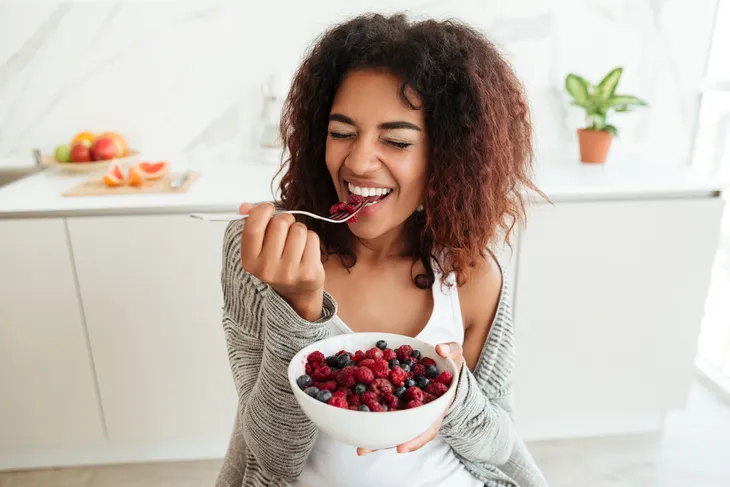In the dead of winter, it’s difficult to focus on the weight you’ve packed on while hibernating and binge watching Netflix. I even notice that my coworkers have been slamming protein-rich smoothies for breaks instead of going to the vending machine.
While eating right to maintain a healthy weight, and even shed a few unwanted pounds may be admirable, there are many other reasons to make healthy changes that don’t even bring losing weight into the equation…
Protection During Flu Season
Sure, a healthy diet can translate to a slimmer waistline, but it can also protect you from all of those seasonal colds and flus swirling around your school or office. A study from the American Journal of Clinical Nutrition notes that if you eat more fresh fruits and vegetables, you’re less likely to fall ill.
In fact, the study showed that the key to iron-skinned immunity is eating your 5 fruits and veggies per day—regardless of the rest of your diet (and even if you have a sweet tooth). But when it comes to the best of the best immune strengthening- foods, garlic is the clear winner, reducing illness by roughly 64-percent. (Here are some more Flu Prevention Tips).
Soothe IBS Symptoms
If you question Jamie Lee Curtis’ claims about the wonders of yogurt, trust in these findings from the journal, BMC Gastroenterology, which link low levels of gut bacteria to the risk of developing irritable bowel syndrome (or IBS).
The research shows that eating probiotic rich foods (i.e., yes yogurt, but also kimchi, kombucha, and kefir) can ease painful IBS symptoms. In fact, the more beneficial bacteria in your gut—the less constipation, diarrhea, gas, bloating, and stomach cramps.
Calms Anxiety
If you lie down to sleep only to have your slumber constantly disrupted by the gerbil wheel in your brain, you could find some respite with a better diet. Research from a group of neuropsychologists and psychiatrists at Maastricht University in the Netherlands links tryptophan deficiency to panic attacks and higher anxiety.
The study deprived a group of participants from the amino acid, tryptophan, and discovered a significant increase in group anxiety and panic attacks. However, once tryptophan (found in dark chocolate, eggs, turkey breast, oats, and fish) was consumed — a feeling of calm, balance, and satisfaction was restored. (Check out these Foods That Help Ease Anxiety).
Blemish-Free Skin
Acne is common in teenage years when hormones are surging. However, if you’re still dealing with bad acne as an adult, your diet may be the blemish culprit. Research from the American Academy of Dermatology points to foods like rich in dairy, processed grains, and refined sugar as pimple plotters.
The same foods were also blamed for triggering rosacea and other chronic skin conditions. However, in most cases, a diet clear of these foods leads to a face clear of blemishes. (Eat more of these Foods for Healthy Skin: How to Get a Radiant Glow).
Healthy Diet Builds Willpower
If you’re scoffing at this claim, consider the renowned Marshmallow Test, conducted by a group of researchers at Stanford University. The study monitored children who were given a marshmallow and told not to eat it as a test of their willpower.
Findings found the kids who were able to hold out on devouring the sweet treat ended up earning higher marks (i.e., SAT scores), higher self esteem, and greater career success compared to children that succumbed to immediate marshmallow gratification.
Eat Better to Save Money
Now even I had my doubts about this claim. However, a Harvard study solidly claims that consuming a healthy diet only costs about $1.50 more per day compared to eating a unhealthy diet.
Considering the current price of cauliflower and kale, you may assume fresh food costs WAY more than fast food. However, keep in mind the added savings when you consider the investment in preventative health over the long term.
Better Diet = Better DNA
Bad DNA seems pretty harsh, but PlOSone.com featured an epigenetic study from 2012 that claims a healthy diet can turn bad DNA into stellar DNA over generations.
That means, if you have a family history of type 2 diabetes, stroke, heart disease, or even certain types of cancer, it is possible to thwart inherited illness and disease in your future offspring (and their offspring) by consuming a healthier diet.
